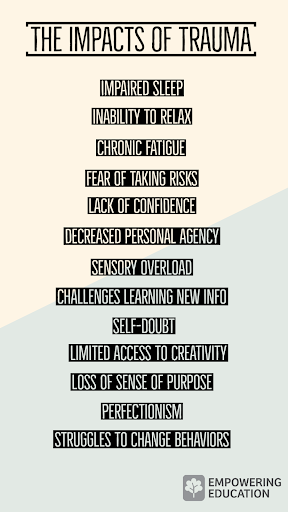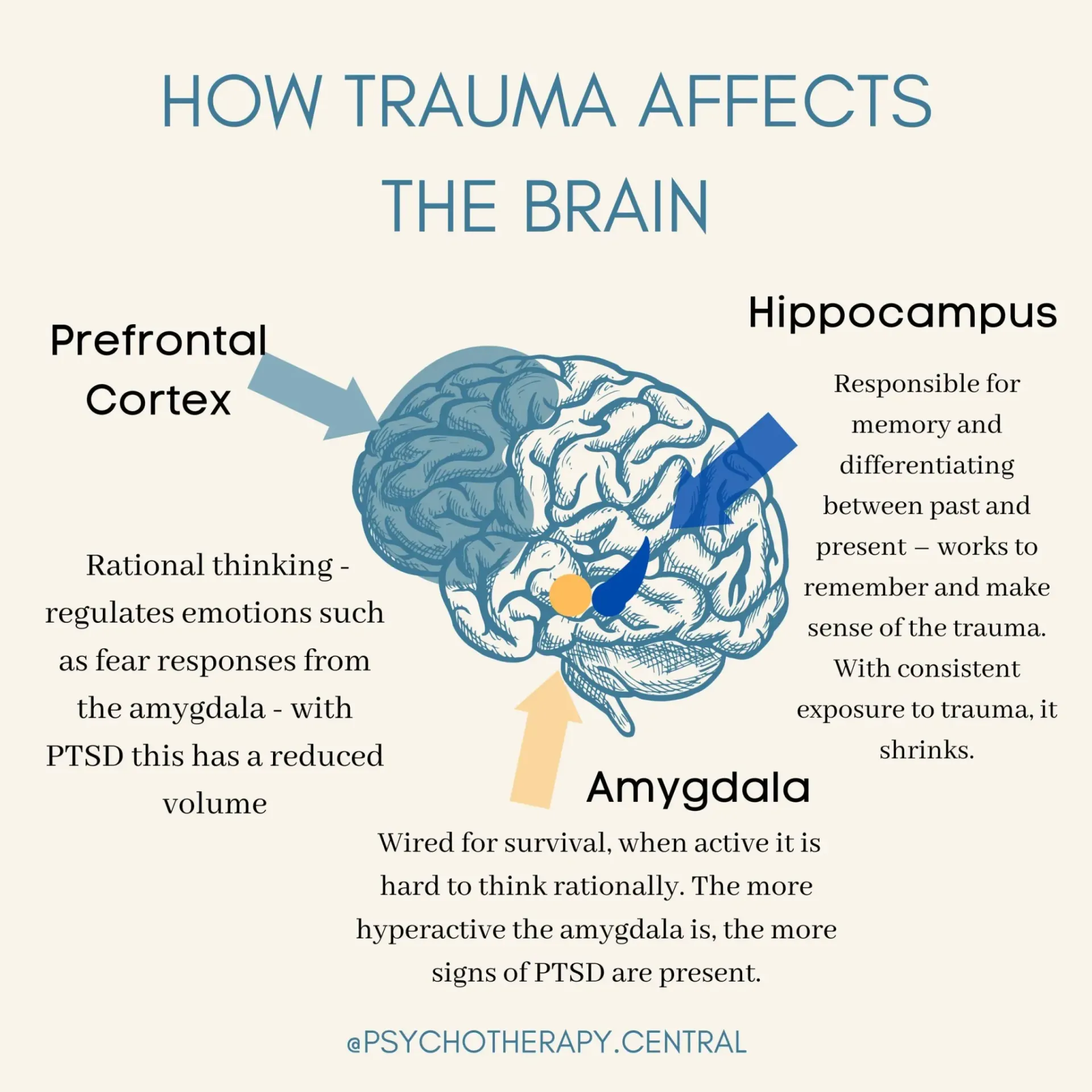You look at the world around you, and you feel misunderstood
No one knows really what your life has been like because, so far, you’ve done your best to fake it and get through the day. But in reality, it’s hard to connect with others let alone feel like you are in your own body.
Mostly what you feel is numb and you wish you could remember feeling love and happiness but that feels forever ago. You have moments of peace, but they are just moments.
And then you're reminded of who you are and what your life has been made up of. To you it feels like a compilation of rubble, hurt, sadness and disappointments. What ever happened to a sense of meaning, a sense of purpose, direction or fulfillment?
Love, joy and ease…these words seem foreign to you
because you've been through the toughest experiences people can go through. Your life experiences have included emotional neglect which has left you feeling confused. You can’t fathom what connection means after being ignored for so long.
Maybe it also includes events and circumstances which no one talks about because they bring fear, doubt and confusion. But these stories are what your life has been built upon.
You're wanting to move on.
But "moving on" is an oversimplification of what it means to move on. Especially after not being cared for, for so much of your life, feeling neglected or having experienced abuse or a violation.
Healing doesn't happen overnight.
You need to cry and mourn AND have a place to develop into a new story with less pain and trauma.
It’s time to feel hope and to get the help you need to create a beautiful life.
Are you wondering ........“What actually is trauma?”
Have you ever experienced a disturbing event that left you with this sense of overwhelm, helplessness and feeling out of control? If yes, it's possible that the stressful situation traumatized you. Psychological trauma leaves its mark by leaving you grappling with memories, anxieties and upsetting emotions that just won't let up.
Traumatization can also present itself if you are left feeling disconnected, unable to trust others or feeling numb. As human beings, none of us can avoid the difficulties and sometimes traumatic experiences of life. However, we are all impacted differently. If you've been impacted by traumatic stress, I encourage you to prioritize your healing so you can get back to a healthy equilibrium. Trauma and stress can be tough, but they don't need to leave a lasting impact.
What is emotional and psychological trauma?
Emotional and psychological trauma come from experiences that, most often, involve a threat to your life or safety. It's the level of extraordinary stress that robs your sense of safety and makes you feel like you're powerless in a dangerous world. Now, traumatic experiences don't need to involve physical harm, per se. The determining factor of trauma is the individuals' subjective experience. Regardless of the external situation, the more you felt frightened and helpless, the more traumatized you will be.
Common causes for trauma are:
- Single incident events-also referred to as shock trauma. ex: an attack (physical, sexual), an injury, accident or shocking event. This is especially traumatic if it was shocking to you (came unexpected) and even more so, if it happened when you were young. For more info on the difference between “big T” traumas and “little t” traumas
- Repetitive, ongoing and consistent stress -also referred to as complex trauma. ex: ongoing bullying, chronic childhood neglect, domestic abuse, living in a danger zone such as a war zone, or crime-filled neighborhood, battling a life-threatening illness or facing an ongoing traumatic event.
- The Less Identified Traumas- what I call the "Silent Wounds". These are the commonly overlooked situations that often cause trauma. ex: experiencing a deeply embarrassing or disappointing experience, losing someone close to you (due to death or moving cities), breaking up with a significant relationship in your life, or interacting with someone who is deliberately cold hearted or cruel (at work or in personal life.) This may also include feeling chronically ignored, unseen, or experiencing chronic stress for example: mom constantly yelling or seeing high conflict (or complete disconnect) in your parents while growing up. More on relational trauma, which is trauma that happens in relationships.
- Traumatic Stress Traumatic stress refers to the experience of stress related to events you weren't directly involved in but cause you a lot of distress. For example, when you hear about man-made disasters such as terrorist attacks, mass shootings, plane crash, or natural disasters, such as a flood, tornado or fire. Although you may not have been directly impacted, watching the news and seeing horrific images can leave an imprint on your mind and body.
One important thing to note is that since we are all uniquely different, we all react differently to emotionally distressing or traumatic experiences. There is absolutely no right or wrong way to feel, think, respond or react. If you've picked up a belief or behavior that is negatively impacting you, please don't judge yourself; I encourage you to understand it as your mind's attempt to coping with an abnormal situation.
How childhood trauma impacts your susceptibility to current trauma.
Trauma isn't a magnet. It doesn't know who to "pick" and traumatize, however, if you've been traumatized before, are under a lot of stress or experienced a recent loss, your system will be more susceptible to being traumatized by a shocking event. This is especially true if you've experienced childhood trauma, as those are the developing years where you brain builds neural networks, learns to acclimate to environments as well as practicing self soothing.
Common childhood traumas include:
- Being separated from a parent
- Being raised in an chaotic, unsafe or unstable environment (ex. alcoholic or mentally unstable parent)
- Experiencing physical, verbal or sexual abuse
- Experiencing neglect- emotional inattentiveness
- Being exposed to or experiencing domestic violence
- Experiencing serious illness
- Going under intrusive medical procedures
The good news is that there are ways for you to let go of the pain, learn to trust yourself, reconnect with others and develop a safer way of being. I've worked with courageous individuals who, in their adult years, healed younger wounds.
Those who took the time to work through traumatic events, memories and self beliefs slowly reprogrammed their thinking and feeling and learned ways to better navigate the world. Doing this allows the individual to be able to fully dive into daily experiences. Regardless of if the trauma happened yesterday, last year or a decade ago, your choices today can move you forward in ways that you need.
Where to begin healing
There are different trauma therapies to help you relieve the feelings, beliefs, memories or pent up "fight-or-flight" energy that are stuck in your body. Common trauma therapy methods, and methods that we offer are:
Somatic Psychotherapy (somatic experience or sensorimotor psychotherapy)
Cognitive Behavioral Therapy
Art Therapy, Dance Movement and Expressive Arts Therapy,
EMDR (Eye Movement Desensitization and Reprocessing)
Parts Work.
The goals and outcomes trauma therapy offers you:
- Improve daily functioning and feel more confident in facing daily life interactions in work, family, love and self care goals
- Provide a safe space in the therapy room and over time, expand that feeling of safety to how you feel in the world (less fearful, and more trusting).
- Help you re-own your personal power, comfortably own your autonomy and improve assertiveness
- Help you understand the history of your trauma, your symptoms and have a clear understanding of who you are, the impact of your trauma, generational trauma and your healing goals
- Significantly reduce symptoms of anxiety and depression
- Ameliorate (and in some cases, eliminate) the uncomfortable triggers of trauma
- Safely process trauma memories
- Successfully shift your focus from the past to the present
- Address and resolve the need to use addictive/self destructive behaviors that were created to manage your post trauma pain
- Plan for the expected waves of emotional triggers, and help you learn to use your toolkit of coping so you regain emotional equilibrium even after difficult moments in life
- Be able to attain dreams and goals that were not possible previously (due to avoidance, fears or worries)
- Find joy in daily life and face your life with more energy, curiosity and openness.
Step into today. Let go of the narrative of the past.


